25 Things Millennials Are Leaving In The Past—And It’s Probably For The Better

As times change, so do tastes, habits, and priorities—and no generation exemplifies this more than millennials. From ditching sugary breakfast cereals in favor of nutrient-packed smoothies to saying goodbye to traditional TV subscriptions and opting for streaming, millennials are reshaping the norm in nearly every area of life. Whether it’s environmental awareness, health consciousness, or simply practicality driving these shifts, one thing’s for sure: many of the things they’re leaving behind probably needed to go. Here are 25 things millennials are saying farewell to—and why that might actually be a good thing.
1. Cable TV subscriptions

Cable TV is becoming a relic of the past as millennials embrace streaming services. They prefer the on-demand convenience and variety offered by platforms like Netflix and Hulu. This shift isn’t just about technology; it’s a move towards personalized entertainment.
Instead of flipping through countless channels, millennials curate their content, watching what they want, when they want. It’s all about flexibility and control, allowing them to avoid annoying ads and schedule constraints.
This generation’s preference for streaming is reshaping how content is consumed and even how shows are produced, prioritizing quality and innovation.
2. Canned tuna
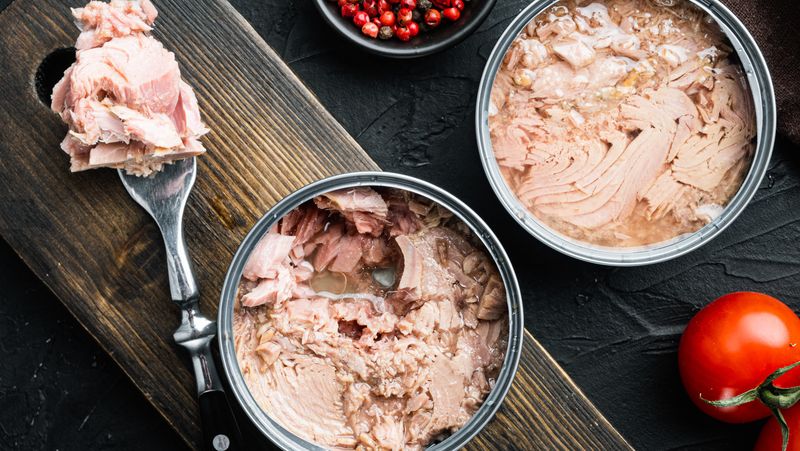
Canned tuna, once a pantry staple, is losing its appeal among millennials. This generation’s culinary habits lean towards fresh, whole foods that align with health-conscious lifestyles. The decline in canned tuna consumption also highlights a lesser-used kitchen tool: the can opener.
Millennials, who prioritize convenience and freshness, often overlook canned options. Instead, they explore modern culinary trends, favoring fresh fish or plant-based alternatives.
This shift underscores a broader trend of moving away from preserved foods, embracing a diet that’s as fresh and wholesome as their approach to life.
3. Chain restaurants
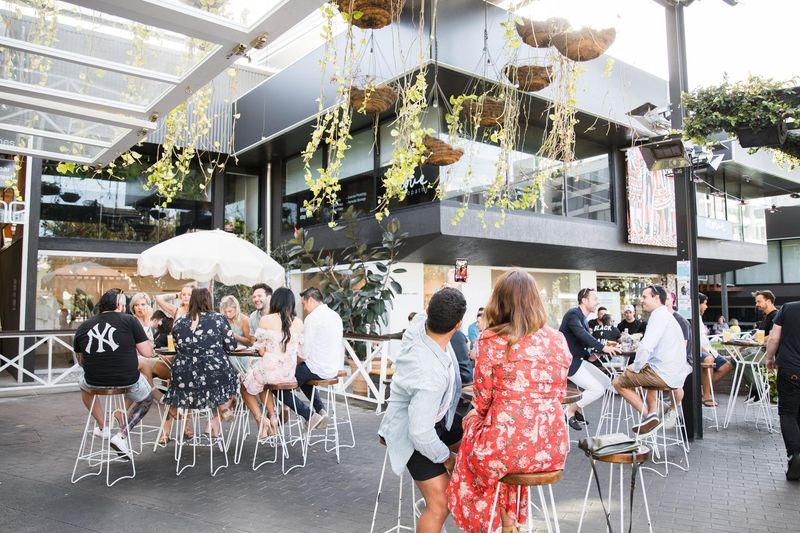
Chain restaurants are finding it hard to keep millennials hooked. This generation craves authenticity, seeking out local eateries that offer unique, handcrafted dishes. Millennials appreciate knowing where their food comes from and the story behind it.
Local spots offer an experience beyond just a meal, emphasizing fresh, sustainable ingredients and innovative menus. This shift also supports local economies and promotes culinary diversity.
By choosing small over big, millennials are redefining dining culture, fostering a more personalized and meaningful connection with food and community.
4. Sugary breakfast cereal
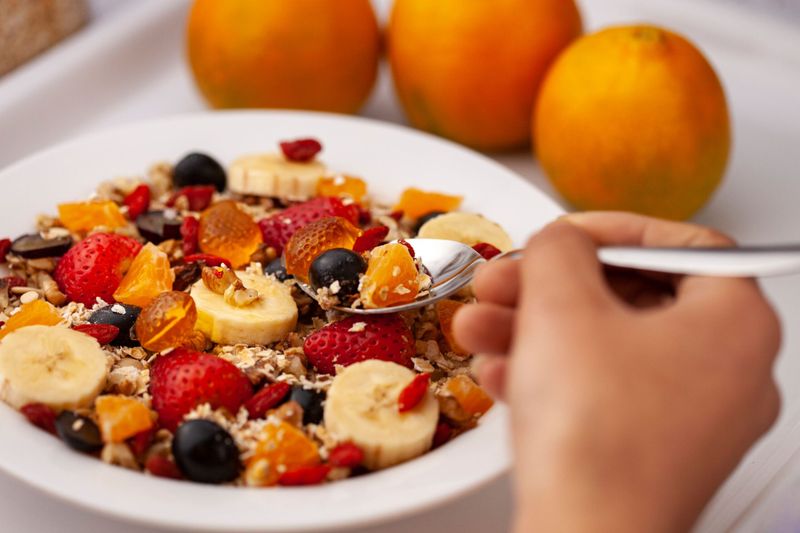
Sugary breakfast cereals are being shelved as millennials opt for healthier morning options. This generation is moving towards protein-rich breakfasts that fuel their busy lifestyles. Eggs, smoothies, and whole grains are taking center stage.
The decline in cereal consumption reflects a focus on nutrition and well-being. Millennials seek breakfasts that sustain energy, avoiding sugar crashes associated with traditional cereals.
This trend is part of a larger movement towards mindful eating, where every meal is a chance to nourish the body and mind, setting a positive tone for the day.
5. Fabric softener
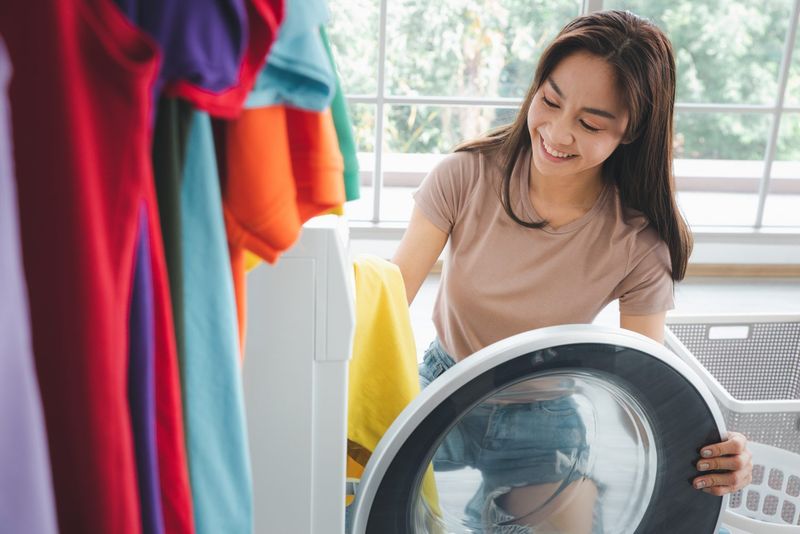
Fabric softener is being phased out by millennials who are embracing eco-friendly laundry routines. This generation is increasingly aware of the environmental impact of household products, choosing simpler, greener alternatives.
Many find that fabric softeners are unnecessary, opting for natural solutions like vinegar or essential oils. This approach aligns with their values of sustainability and minimalism.
By skipping the softener, millennials are not only reducing chemical use but also simplifying their lives, creating a laundry routine that’s both effective and environmentally responsible.
6. Disposable charging cables and old tech accessories
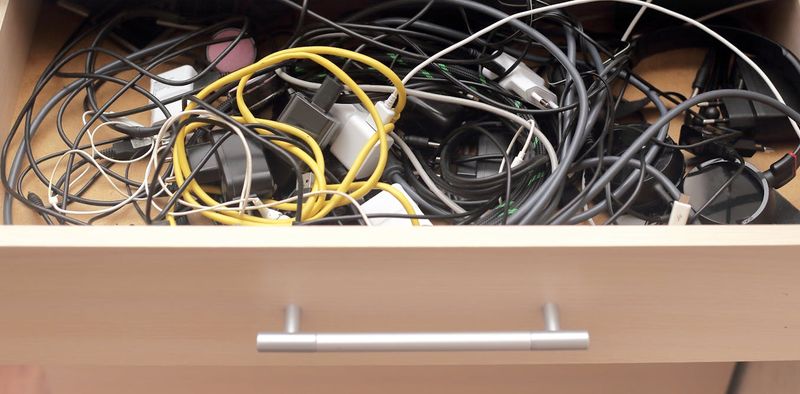
Millennials are phasing out disposable charging cables and outdated tech accessories. This shift is driven by a preference for sustainability and modern technology. Wireless charging and multifunctional devices offer convenience and reduce clutter.
The reliance on single-use cables is declining as millennials invest in quality, durable tech. This change reflects a broader trend towards minimalism and efficiency in everyday technology use.
By embracing the latest innovations, millennials are not only enhancing their tech experience but also supporting a more sustainable approach to gadgetry.
7. Beige, cookie-cutter home décor

Beige, bland home décor is being swapped for personalized, colorful interiors. Millennials are injecting personality into their spaces, moving away from cookie-cutter designs. They favor bold colors, unique art, and decor that reflects individual tastes.
This shift signifies a break from traditional norms, embracing creativity and self-expression in living spaces. Millennials seek a home environment that inspires and energizes.
By transforming their homes into reflections of their identities, they’re fostering a living space that’s both comforting and invigorating, challenging the status quo of interior design.
8. Traditional midlife crises

Traditional midlife crises are being redefined by millennials, who focus on introspection and wellness. Instead of impulsive purchases or drastic changes, this generation seeks purpose and balance.
Mindfulness practices, such as yoga and meditation, are preferred over dramatic life overhauls. Millennials prioritize mental health and self-discovery, challenging the stereotypical crisis narrative.
This approach is reshaping how midlife is perceived, turning potential turmoil into an opportunity for growth and fulfillment, aligning with a broader cultural emphasis on well-being.
9. Mayonnaise

Mayonnaise is slowly disappearing from millennials’ kitchens, replaced by healthier alternatives. Avocado, hummus, and Greek yogurt are becoming the spreads of choice.
This shift reflects a desire for natural, nutritious ingredients that enhance flavor without unnecessary additives. Millennials prioritize health, seeking flavorful options that satisfy without compromise.
By choosing alternatives to mayonnaise, they’re embracing a culinary approach that values taste and well-being in equal measure.
10. Buying diamonds

Millennials are turning away from traditional diamond buying, opting for experiences or sustainable alternatives. This generation values memories and ethical considerations over material possessions.
Lab-grown diamonds and other ethical jewelry options are gaining popularity, aligning with millennial values of sustainability and social responsibility. They’re redefining luxury to include meaningful experiences.
By prioritizing experiences over diamonds, millennials are reshaping the market, emphasizing authenticity and conscious consumerism.
11. Golf memberships

Golf memberships are losing appeal among millennials, who find the sport expensive and time-consuming. This generation favors activities that are more engaging and accessible.
Millennials prefer experiences that promote social interaction and fitness, such as hiking or group sports. The shift away from golf reflects broader lifestyle changes towards inclusivity and activity.
By choosing alternative recreational activities, millennials are redefining leisure, prioritizing experiences that offer connection and excitement.
12. Marriage at young age

Marriage at a young age is becoming less common as millennials prioritize personal growth and stability. This generation values financial independence and career development before tying the knot.
Delayed marriage allows for exploration and self-discovery, aligning with millennials’ desire for meaningful relationships founded on mutual understanding and shared goals.
By approaching marriage with intention and readiness, millennials are reshaping traditional timelines, fostering partnerships that are resilient and deeply connected.
13. Ghosting friends

While ghosting has been associated with millennials, many are valuing deeper, reciprocal connections. They seek authenticity in friendships, moving away from superficial interactions.
This shift reflects a desire for meaningful connections that withstand challenges and grow over time. Millennials emphasize communication and understanding in their relationships.
By prioritizing genuine friendships, they’re fostering a culture of empathy and respect, moving away from the impersonal nature of ghosting.
14. Heavy gym memberships

Heavy gym memberships are being traded for more flexible fitness options by millennials. This generation is exploring boutique fitness classes, home workouts, and outdoor activities.
Millennials value variety and accessibility in their fitness routines, seeking activities that fit seamlessly into their lifestyles. They prioritize health and well-being over rigid gym schedules.
By embracing diverse fitness options, millennials are redefining what it means to be active, creating routines that are enjoyable and sustainable.
15. Manual-transmission cars

Manual-transmission cars are becoming a rarity as millennials opt for automatics. This choice reflects a preference for ease and convenience in daily commutes.
Automatic vehicles offer simplicity, allowing drivers to focus more on the journey and less on constant gear changing. Millennials appreciate the stress-free driving experience.
By choosing automatics, they’re embracing technology that enhances daily life, favoring innovations that prioritize comfort and practicality.
16. Large chain grocery shopping

Large chain grocery shopping is being replaced by trips to farmers markets and local shops. Millennials prefer sustainably sourced produce and supporting local agriculture.
This shift reflects a commitment to environmental responsibility and community engagement. Fresh, organic options are favored over mass-produced goods.
By choosing local, millennials are redefining shopping habits, prioritizing quality and sustainability in their everyday choices.
17. Driving midlife-spurred sports cars

Midlife is being reimagined by millennials, who are forgoing the stereotypical sports car purchase. This generation focuses on personal growth and experiences.
Millennials prioritize inner fulfillment over outward displays of success. Their approach to midlife is less about possessions and more about meaningful journeys.
By rejecting the traditional midlife crisis symbols, they’re embracing a holistic view of life that values purpose and connection.
18. Traditional retirement planning

Traditional retirement planning is being redesigned by millennials, who face economic instability and shifting career paths. This generation seeks flexible retirement solutions.
Many millennials explore side hustles or passive income streams, reflecting a need for security in uncertain times. They prioritize adaptability in retirement strategies.
By challenging conventional retirement norms, millennials are crafting futures that are as dynamic and unpredictable as their careers.
19. Mass-market beauty/junk products

Mass-market beauty products are losing ground to minimal, natural alternatives among millennials. This generation prioritizes simplicity and quality.
Multi-use, eco-friendly products are favored, reflecting a desire for sustainable beauty routines. Millennials seek authenticity in the brands they support.
By choosing mindful beauty solutions, they’re redefining industry standards, fostering a culture of conscious consumerism.
20. Side-part hairstyles and skinny jeans

Side-part hairstyles and skinny jeans are being set aside for more diverse fashion choices. Millennials embrace individuality and self-expression in their style.
New hair trends and clothing styles reflect a move away from uniformity, celebrating diversity and creativity. This generation values fashion that resonates personally.
By innovating their wardrobes, millennials are redefining fashion, promoting a culture where everyone can find their unique voice.
21. The “I hate my spouse” joke genre

The “I hate my spouse” joke genre is losing its place as millennials foster healthier, more respectful relationships. This generation values partnership and empathy.
Social attitudes are maturing, with millennials seeking meaningful connections that uplift and support. Humor in relationships is evolving to reflect positivity and understanding.
By moving away from negative stereotypes, millennials are cultivating partnerships that thrive on mutual respect and love.
22. Fabric photo albums

Fabric photo albums are being traded for digital alternatives as millennials embrace technology in preserving memories. This generation captures and stores moments with ease.
Digital albums offer accessibility and convenience, allowing for sharing and customization. Millennials appreciate the ability to revisit memories anytime, anywhere.
By going digital, they’re redefining how memories are kept, prioritizing innovation and practicality in their sentimental journeys.
23. Late-night TV appointment viewing
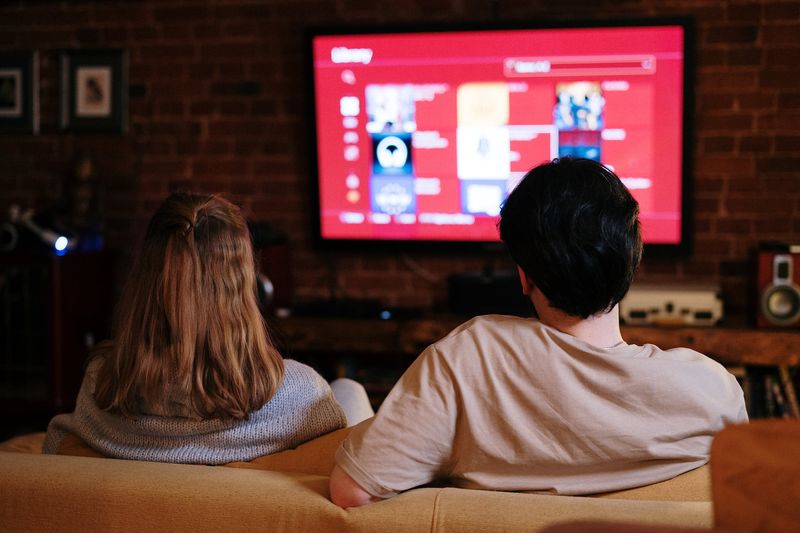
Late-night TV appointment viewing is becoming obsolete as millennials turn to online platforms for news and entertainment. This generation values flexibility and convenience.
Streaming services provide content at any time, aligning with the busy lifestyles of millennials. The shift away from rigid schedules reflects broader changes in media consumption.
By embracing on-demand access, millennials are redefining how entertainment is experienced, prioritizing autonomy and choice.
24. Blind brand loyalty

Blind brand loyalty is being replaced by informed consumerism among millennials. This generation researches products, prioritizing values alignment over tradition.
Millennials seek transparency and ethical practices, supporting companies that share their ideals. They value authenticity and quality, challenging brand norms.
By becoming discerning consumers, millennials are reshaping the market, promoting a culture of accountability and conscious choices.
25. Fad diets and extreme wellness trends

Fad diets and extreme wellness trends are being left behind as millennials embrace balanced health habits. This generation focuses on sustainability and well-being.
Millennials prioritize long-term health, rejecting quick fixes for comprehensive wellness strategies. They value approaches that are realistic and nourishing.
By choosing sustainable health habits, they’re redefining wellness, fostering a culture of balance and vitality.

Comments
Loading…